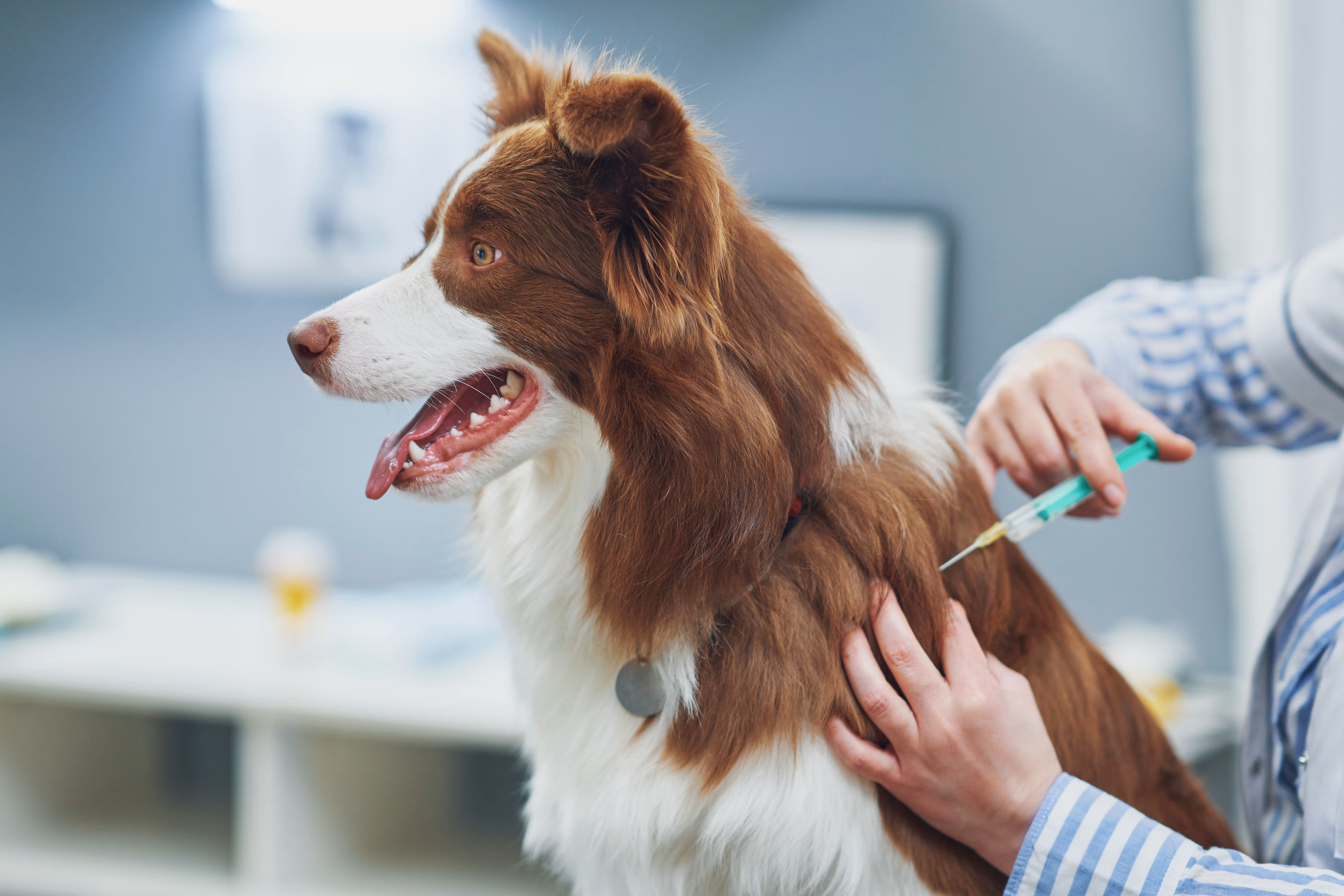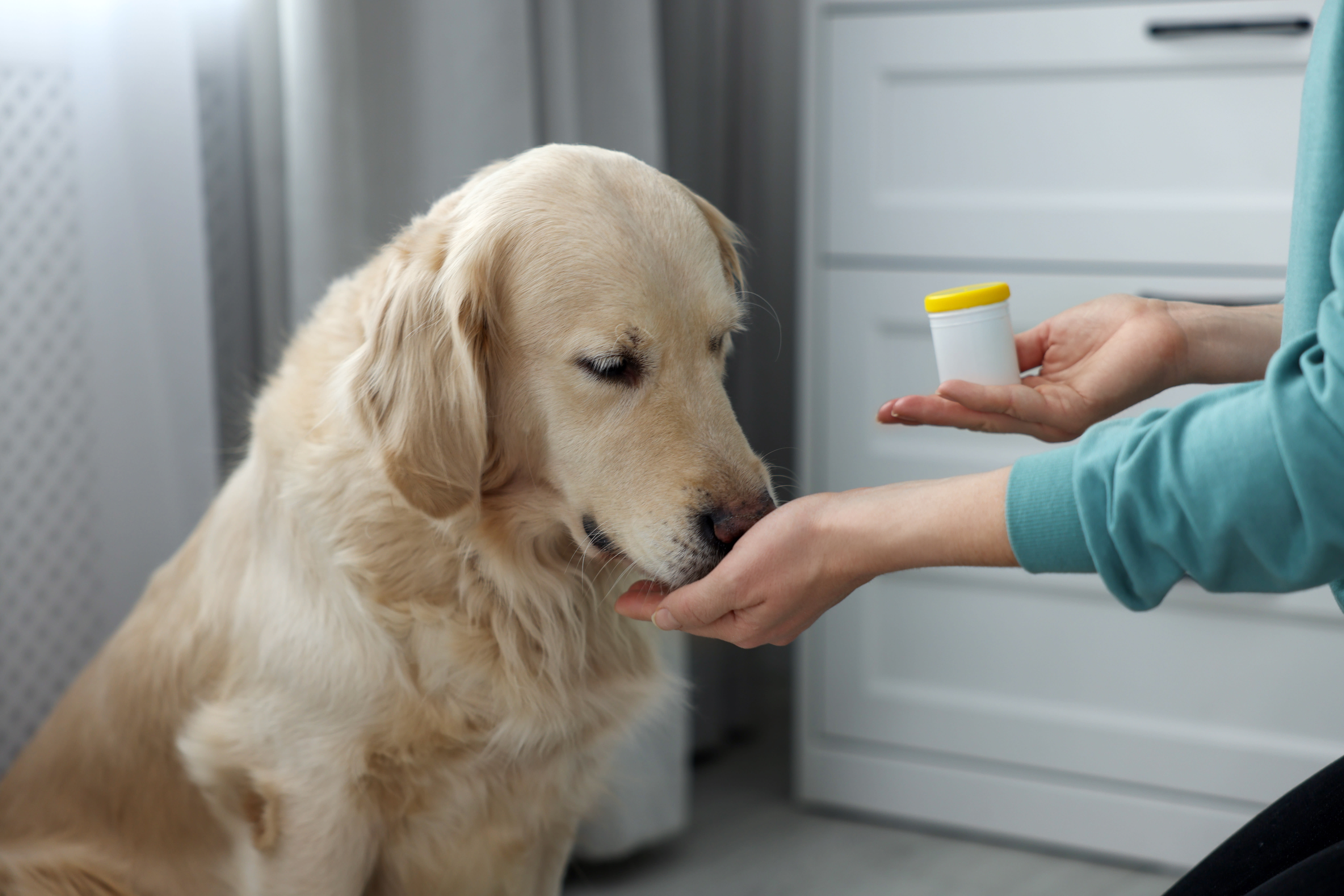Rimadyl


PROVEN PAIN RELIEF FOR DOGS
Veterinarians’ #1 choice used to treat over 29 million dogs.*
*Brakke market research, 2019. Data on file. Zoetis Inc.
See Details

Related Searches
FAQs About Rimadyl
Your pet will need certain laboratory tests and exams while taking Rimadyl. Give Rimadyl exactly as your veterinarian directs. Be aware of the common side effects of this medication, listed below. Notify your veterinarian immediately if any side effects are observed.
Not for use in cats.
Not for use in animals who are hypersensitive (allergic) to carprofen (Rimadyl, Novox), aspirin, etodolac (EtoGesic), deracoxib (Deramaxx), firocoxib (Previcox), meloxicam (Metacam), tepoxalin (Zubrin), or other NSAIDs.
This medication should only be given to the pet for which it was prescribed
The most common side effect of NSAIDs is stomach upset, but stomach ulcers may develop, in which case you may see loss of appetite; vomiting; diarrhea; dark, tarry or, bloody stools; or constipation. Side effects involving the kidney include increased thirst and urination, or changes in the urine color or smell. Liver-related side effects include jaundice (yellowing of the gums, skin, or eyes). Other side effects may include pale gums, lethargy, shedding, incoordination, seizures, or behavioral changes. If any of these side effects are observed, stop treatment and contact your veterinarian.
If your pet experiences an allergic reaction to the medication, signs may include facial swelling, hives, scratching, sudden onset of diarrhea, vomiting, shock, seizures, pale gums, cold limbs, or coma. If you observe any of these signs, contact your veterinarian immediately.
Store at room temperature in a tight, light resistant, childproof container; do not expose to high heat. Store in a secure area to prevent an accidental overdose. Keep out of reach of children and pets.
With an overdose, you may see vomiting; diarrhea; dark, tarry, or bloody stools; constipation; increased thirst and urination; changes in the urine color or smell; yellowing of the gums, skin, or eyes; incoordination; seizures; or behavioral changes. If you know or suspect your pet has had an overdose or if any of these side effects are observed, stop treatment and contact your veterinarian immediately.
Consult your veterinarian before using Rimadyl with any other medications, including vitamins and supplements, other NSAIDs (e.g., aspirin, Novox, etodolac (EtoGesic), deracoxib (Deramaxx), firocoxib (Previcox), tepoxalin (Zubrin), and meloxicam (Metacam); steroids (e.g., prednisone, dexamethasone, Medrol, triamcinolone), methotrexate, furosemide (Lasix) , digoxin, phenobarbital, oral anticoagulants (heparin, warfarin), enalapril, phenylpropanolamine, sulfa drugs, and some oral antidiabetic drugs, since interactions may occur.
IMPORTANT SAFETY INFORMATION: The safe use of Revolution Plus has not been established in kittens less than 8 weeks old or in breeding, pregnant or lactating cats. Reported side effects in clinical trials included lethargy and anorexia. Use with caution in cats with a history of neurologic disorders. Sarolaner, one of the ingredients in Revolution Plus, is a member of the isoxazoline class, which has been associated with adverse reactions such as tremors, ataxia, and seizures. Reactions have occurred in cats with or without a history of neurologic disorders. In humans, Revolution Plus may be irritating to skin and eyes. See full Prescribing Information










